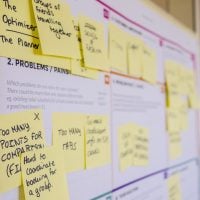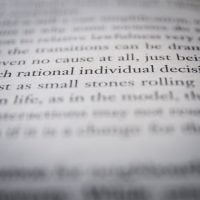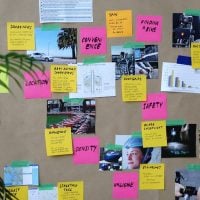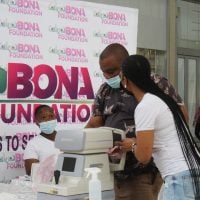Deadline: 28-Mar-23
The European Commission (EC) has launched the Strategies to prevent and reduce plastic packaging pollution from the food system under the Horizon Europe Framework Programme (HORIZON).
Scope
- The use of single-use plastics in food packaging has grown significantly in the last decades, leading to increased pollution in the environment and greenhouse gas emissions. While plastic packaging is an enabler for the safety and shelf life of food products, contributing to the reduction of food waste, there is a need for improved solutions that promote the prevention and reduction of excessive packaging in the food industry. Often, the excessive food packaging results in its inappropriate disposal or littering by consumers. This can be reduced through the application of circular models for design and production and the proper disposal and recycling of packaging waste.
Funding Information
- The check will normally be done for the coordinator if the requested grant amount is equal to or greater than EUR 500 000, except for:
- Public bodies (entities established as a public body under national law, including local, regional or national authorities) or international organisations; and
- Cases where the individual requested grant amount is not more than EUR 60 000 (lowvalue grant).
Proposals are expected to
- Provide a comprehensive and evidenced based analysis of the negative impacts and externalities of littered plastic food packaging in the different terrestrial, freshwater and marine environments and ecosystems across Europe. This analysis should provide reliable quantitative new data and fill in existing data gaps on these negative impacts and externalities through multiple sources, including citizen science tools.
- Provide an analysis of the main challenges and existing good practices of prevention and reduction of single use plastics, aiming at shifting the current packaging design and production practices. This analysis should address the availability of sustainable and innovative alternatives as well as the readiness of food packaging producers and food business operators to adopt such solutions.
- Develop innovative business strategies, design and production models that improve the prevention, reduction and reuse of plastic food packaging, whilst ensuring that they can be easily implemented in European countries. These business strategies and models should involve all relevant actors, including food SMEs and, when appropriate, policy makers. They should consider health and environmental impacts of packaging, guaranteeing they do not cause any contamination of food and the environment by hazardous chemicals. Moreover, they should maintain the microbiological and chemical safety and quality of food, taking into account relevant parameters such as their contact with aqueous and fatty foods, aging, and effect on shelf life.
- Develop innovative strategies, design and production models to facilitate packaging recycling, linking developers of sustainable packaging with converters and recyclers, taking into account the recycling capacity technologies and the relevant technical specifications of the use of recycled content. These strategies should namely target collection systems, the use of mono-materials, the reduction of labelling materials and the promotion of easy to sort and clean materials.
- Develop strategies aimed at improving consumer acceptance of sustainable, efficient and fit-for-purpose packaging solutions, facilitating the use of reusable and recyclable packaging for consumers, easing the sorting and appropriate disposal of packaging, and helping them to correctly interpret labelling of packaging. These strategies should be designed based on a joint effort of developers of sustainable packaging and consumers and should aim at avoiding confusion, minimising misuse, increasing user convenience and encouraging a greater uptake of such packaging solutions.
- Implement multi-actor approach by involving a wide range of food packaging actors and consumers and conducting inter-disciplinary research.
- Support social innovation for inclusive and long-term solutions aiming at the reduction of plastic food packaging.
The proposals may
- build links with the European Mission ‘Restore their ocean and waters by 2030’, in particular with the Mission activities under objective 2 – prevent and eliminate pollution in their ocean, seas and water, and with the Mission lighthouse activities in the Mediterranean Sea basin focusing on preventing, minimising, remediating and monitoring pollution;
- Build links with the Mission implementation monitoring system;
- Build links and support the Mission’s knowledge and information system (Digital Twin Ocean), in particular by contributing to pollution monitoring, modelling, and knowledge creation and data.
- Proposals must implement the ‘multi-actor approach’ and ensure adequate involvement of researchers, food business operators, food packaging producers, developers of sustainable packaging, packaging converters and recyclers, consumers, local and regional authorities and other relevant actors.
- This topic should involve the effective contribution of social sciences and humanities (SSH) disciplines. In order to achieve the expected outcomes, international cooperation is encouraged.
- Examples of these impacts include endocrine disrupters or perfluoroalkyl substances in coatings, lack of inertness or organoleptic risks from uncoated paper, and characterising risks such as from epoxy silanes in adhesives, and from mineral oil hydrocarbons and printing ink residues in paper, aging effects of reusable materials, and the suitability for recycling (mono-material, labelling, minimum recycled content).
Expected Outcomes
- To support the implementation of the European Green Deal, the new circular economy action plan, the EU 2030 climate target plan, the farm to fork strategy, the food 2030 initiative and the Mission ‘Restore
- Their ocean and waters by 2030’, successful proposals are expected to contribute to all of the following expected outcomes:
- Increased knowledge on the impacts of littered plastic food packaging on the terrestrial, freshwater and marine environments and ecosystems, including the climate change mitigation and adaptation dimensions;
- Uptake of innovative business strategies, design and production models to prevent and reduce the use of plastic food packaging;
- Adoption of increasingly sustainable, effective and efficient fit-for-purpose packaging solutions by food operators, and reduction of the dependency on fossil-based materials, thus contributing to EU climate action;
- Increased reuse and recycling of sustainable packaging;
- Increased consumer acceptance of sustainable, efficient and fit-for-purpose food packaging solutions including where appropriate the non-use of any type of packaging;
- Support to the implementation of the relevant targets as outlined in the revised packaging and packaging waste directive and the directive on single-use plastics and support to operators, especially SMEs, in meeting the requirements of the relevant EU legislation.
Eligibility Criteria
- Any legal entity, regardless of its place of establishment, including legal entities from nonassociated third countries or international organisations (including international European research organisations) is eligible to participate (whether it is eligible for funding or not), provided that the conditions laid down in the Horizon Europe Regulation have been met, along with any other conditions laid down in the specific call topic.
- A ‘legal entity’ means any natural or legal person created and recognised as such under national law, EU law or international law, which has legal personality and which may, acting in its own name, exercise rights and be subject to obligations, or an entity without legal personality.
- Beneficiaries and affiliated entities must register in the Participant Register before submitting their application, in order to get a participant identification code (PIC) and be validated by the Central Validation Service before signing the grant agreement. For the validation, they will be asked to upload the necessary documents showing their legal status and origin during the grant preparation stage. A validated PIC is not a prerequisite for submitting an application.
For more information, visit European Commission.









































